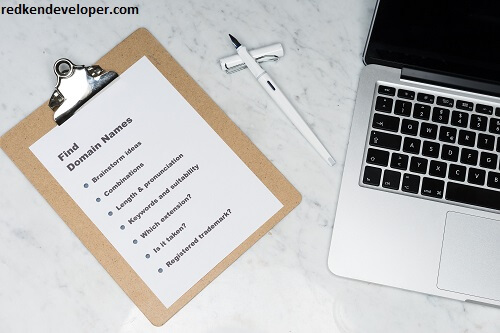Resume of a WordPress Developer: A Complete Guide
Developer:
Resume WordPress Developer, In today’s digital ecosystem, businesses, people, and organizations need to have a website. Among the most popular website creation and management tools is the powerful Content Management System called WordPress, powering more than 40% of all sites on the internet. Hence, the market requirement for experienced WordPress Developers is of high order. The people working on creating, customizing, and updating websites with the help of the WordPress platform are called WordPress developers.

This article goes deep into the role of a WordPress Developer, including key skills and responsibilities, qualifications, and career prospects. It also contains a very detailed FAQ on this role, which can prove of utmost help to aspiring WordPress developers as well as to employers in understanding what they may expect from this particular position.
What Is a WordPress Developer?
Developer:
A WordPress developer is a web developer who specializes in creating sites with the help of the WordPress CMS. According to skills, WordPress developers might work both on the front and back-end aspects of websites. A WordPress developer’s job usually involves these tasks custom themes, creation of custom plugins, responding to problems created by various bugs, and optimizing performance so that the website will provide a smooth experience to the user.
- WordPress developers come in two broad categories: front-end and back-end WordPress developers. Front-end WordPress Developers.
- Front-end WordPress developers: focus on the design and layout of a website. They make sure it is pretty to look at and comfortable to use. Their specialty is HTML, CSS, JavaScript, PHP, along with the application of WordPress themes.
- This is the WordPress developer: wly cares for the side server of the website, develops specific custom plugins, integrates third-party services, optimizes databases, and ensures the WordPress CMS runs without a hitch. They mainly work with PHP, MySQL, and server management.
Other developers are jack-of-all-trades who know both front-end and back-end development: Full-Stack WordPress Developers.
Main Responsibilities of a WordPress Developer:
Developer:
The tasks of a WordPress Developer would vary based on the job, but here are some general ones.
1. Theme and Plugin Development:
The WordPress developer usually develops a custom that matches the client’s needs. For this, one has to write clean, optimized code in HTML, CSS, JavaScript, and PHP to create either an altogether new theme or modify the existing one.
Plugin Development: Their task will be to create bespoke plugins in an endeavor to enhance the functionality of a WordPress website, such as introducing features to add any custom forms, SEO optimization tools, social media integration, and many others.
Theme Customization: Developers may times attempt to list themes and modify them according to the specific needs of a project, which includes adjustments in layouts, colors, types of font, and introducing new custom functionality.
2. Website Maintenance and Troubleshooting:
Keep everything up-to-date: The developers must ensure that the CMS, themes, and plugins in WordPress are updated for security reasons, functionality, and compatibility.
Bugfixing: Developers take care of broken and ks, and problems in layout due to issues created by a conflict in plugins.
Optimization of the websites to speed up their performance: It is one of the major responsibilities regarding time to load and lessened server load.
3. Cross-Browser as well as Cross-Device Compatibility:
Developing sites that are cross-browser compatible by the developers on WordPress, including Chrome, Firefox, Safari, etc, and compatibility with different smart mobile devices such as smartphones and tablets. WordPress also employs a responsive design that adjusts automatically in case of alteration in screen size and resolution.
4. Optimization for SEO and Performance:
Sometimes, WordPress developers make sure to take on the SEO work of the site to ensure that it is search-engine friendly. This may include: setting up SEO plugins such as Yoast; optimization of meta tags; and optimization of website speed.
The second very important part of the developer’s job, is to optimize the website for performance. It involves finding ways to decrease page load times, compressing images, and setting up caching solutions.
5. Security and Backup:
All those measures would be implemented with a complete set of SSL certificates, firewalls, and security plugins that would make this website secure from all cyber-attacks.
Regular backup of the site is also important so as ant not to lose all data due to servers crashing or hacking attempts.
6. Coordinating with Designers and Content Managers:
WordPress developers most often collaborate with web designers to bring the concepts of design into an action-based reality. They ensure that the design is functional yet user-friendly and supports efficient front-end performance of the website.
Integrate the features of content management by collaborating with content managers or marketers, for example, custom post types, SEO-friendly metadata, etc.
7. Communication with the Client and Project Management:
The WordPress developers might work directly with clients to understand the client’s needs and the scope of the project.
They ensure the completion of projects within time and work with project managers in collaboration as concerned with the collaboration of tasks and deliverables.
Important Skills and Qualifications for WordPress Developers:
Developer:
To become a successful WordPress Developer, you would need to combine technical skills, knowledge of design, and soft skills. The following are some of the most important skills and qualities that are usually required.
1. Technical Skills:
- HTML/CSS: It forms the base of all web development, and this is what structures and styles the whole WordPress theme and content.
- JavaScript: JavaScript is used for creating interactive elements and ensuring a dynamic user experience.
- PHP: Since WordPress is constructed in PHP, the developer needs to be pretty comfortable with this programming language; hence, he can alter the themes, and plugins, and even develop back-end functionality.
- MySQL: WordPress employs MySQL for a database management system, so one needs to have some working knowledge of how to connect to databases in WordPress development.
- RESTful APIs and Web Services: Modern sites become the new normal for adding third-party services and APIs to WordPress.
- Version Control (Git): The ability to collaborate with other developers, track changes, and even deploy the website using version control tools like Git.
2. Design and Front-end Skills:
Responsive Design: Your site should adhere to proper design principles and frameworks for properly deployed sites across all devices.
UX/UI Design: The developer does not necessarily have to be a full-fledged designer but understanding the principles behind UX and UI design goes quite a long way in making a user-friendly and intuitive.
Cross-Browser Compatibility: The need to ensure that a website works perfectly on different browsers becomes a given for the WordPress developer.
3. SEO and Performance Optimization:
WordPress developers need to apply the fundamentals of applying SEO best practices, so they can offer better services to their clients in optimizing their websites for search engines. This will involve the configuration of SEO plug-ins, improvement of page speed, and having URLs that are friendly and SEO-oriented.
4. Problem-solving and Debugging Skills:
Excellent troubleshooting skills for issues that crop up during the development process and after the website goes live by WordPress developers. Debugging and rigorous testing of a site ensure the best quality.
5. Soft Skills:
- Communication: This is all about crystal-clear communication, particularly with clients, project managers, and other members of the team.
- Time Management: Deadlines are always a key factor in most WordPress development projects; therefore, timely management of time is critical in finishing work punctually.
- Attention to Detail: A WordPress developer neneedsackt btotolaclack lacking attention detto ail. In these aspects, the design as well as the functionality should be perfect.
How to Build a Strong WordPress Developer Resume:
Developer:
Your WordPress Developer resume should reflect your technical skills and experience, highlighting every project on your list. Here are key sections to include on your WordPress Developer resume:
- Contact Information: Put in your full name, phone number, email address, and LinkedIn or portfolio link.
- Summary: A paragraph describing your experience and skills as a WordPress Developer. More about developing themes, and plugins, as well as proficiency in different web technologies.
- Skills: Technical skills will include but not be limited to, PHP, JavaScript, HTML/CSS, Git, etc.
- Experience: Do include any work history. This could comprise of companies worked and, roles where experience is being shared. Rather, focus on specific WordPress projects that have been undertaken and key technologies that have been used to obtain the desired impact relating to business.
- Projects: Any personal or freelance work is also encouraged to be included. Live websites that have been developed or on which work has been done should be linked.
- Education: Include the degree(s) and any pertinent credentials such as web development, WordPress, or related technologies.
- References: List references or references from previous clients, colleagues, or employers to attest to your skill.
WordPress Developer Career Opportunities and Advancement:
Developer:
The scope of opportunities an individual has when becoming a WordPress developer is quite large. Most start as junior members of a development team and can then advance upwards to more senior roles such as:
- Lead Developer: Will be the guide for the developers, along with handling large WordPress projects.
- Technical Architect: Takes care of the technical architecture of WordPress websites and applications concerning scalability.
- Freelance WordPress Developer: Provides WordPress development services to clients either on a contract basis or freelance.
- Web Development Manager: This person will be in charge of both the technical and creative aspects of the web development team.
Increasingly more businesses come to understand that WordPress is the perfect option for developing websites and online stores, and the flexibility and scalability mean the demand for WordPress developers will surely go up.

